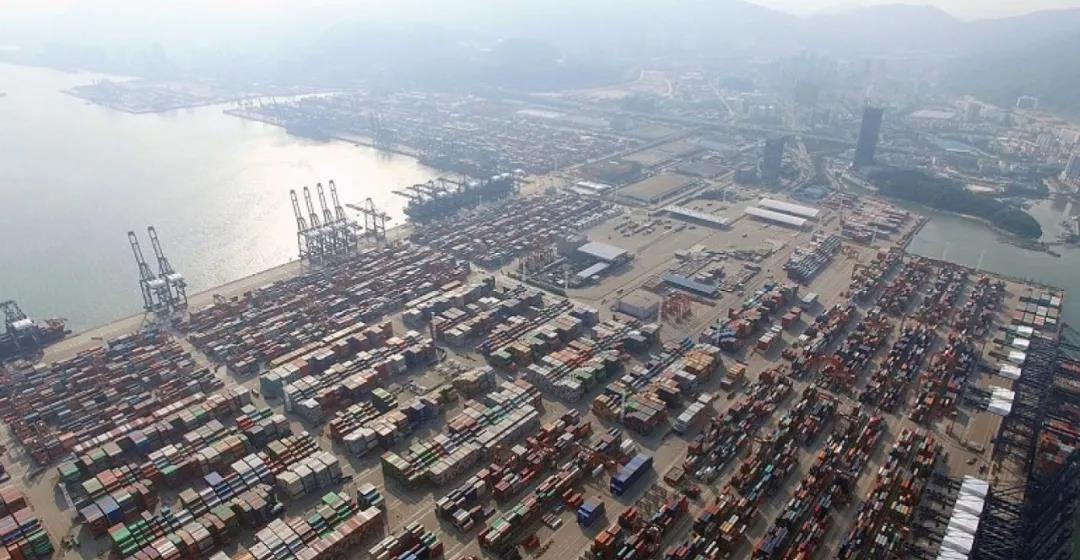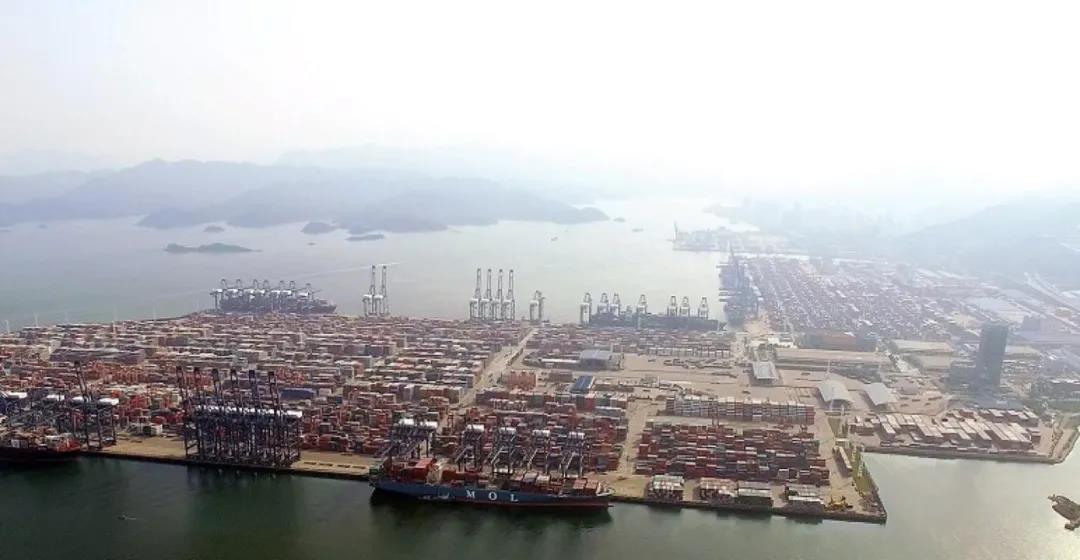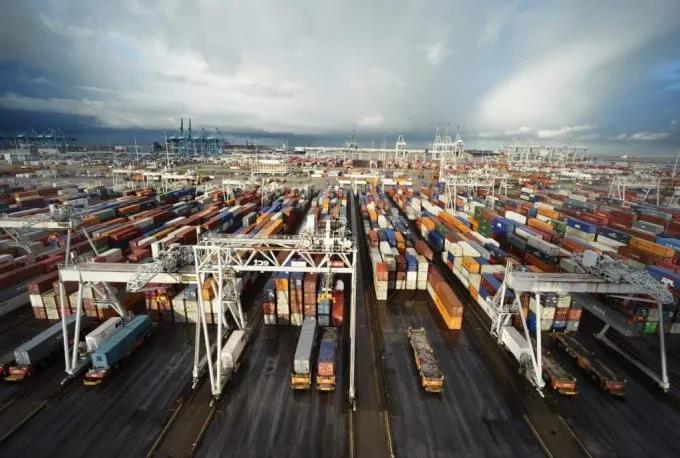Yantian port congestion has extended to neighboring ports, as a large number of ships have canceled calls to the heavily congested Yantian port, placing a serious burden on neighboring ports - delays continue to increase at Nansha and Shekou ports.

Yantian port congestion has extended to neighboring ports, as a large number of ships have canceled calls to the heavily congested Yantian port, placing a serious burden on neighboring ports - delays continue to increase at Nansha and Shekou ports.
Analysts at project44 said that between June 1 and 15, global container liners suspended 298 sailings with a total capacity of more than 3 million TEUs, which represents a 300% increase in the number of sailings suspended in one month. While not all of the empty sailings were caused by Yantian International Container Terminal, the impact is clear.
Josh Brazil, project44's vice president for marketing, said, "While Yantian Port was the epicenter of this incident, these numbers spell trouble for the shipping industry as a whole, especially those companies that rely on these routes.Even freight not directly affected by the Saltan situation will be implicated as carriers adjust their networks to avoid their congestion."
Josh Brazil said the number of blank voyages is still rising as of June 24 and will decline after that, depending on how the outbreak continues to be contained at that port and in South China.
Maersk said that as of June 21, Nansha's yard density had reached 100 percent, and it expects continued delays of four to five days for vessels at Nansha port in the coming week. Nansha will only accept export containers loaded seven days prior to a vessel's expected arrival time and only if the terminal confirms advance bookings by trucking companies. The supply of 40-foot containers at Yantian and Shekou remains tight and Maersk is advising customers to use 20-foot containers as an alternative.
The Shekou Port, including Chiwan Container Terminal, Ma Wan Container Terminal and Shekou Container Terminal, has tightened its rules to accept only fully loaded export cargoes at the locks within four days prior to the vessel's expected arrival time.

Shekou Port (including Chiwan Container Terminal, Ma Wan Container Terminal and Shekou Container Terminal) has tightened its rules to accept export bookings only up to four days prior to the arrival of a vessel. For Yantian itself, Maersk reported that the eastern part of the terminal is operating at around 54% of normal capacity and gradually recovering, with yard density down to 60%. Maersk expects flights from Yantian to be "delayed by more than four days" in the coming week.
On June 21, Maersk reported that the number of vessels operated by Maersk and its partners that have canceled calls to Yantian increased to 90 from 84 last week. Containers loaded with imported goods on these vessels are expected to be delayed by more than three weeks.
Project44 warned that even if operations return to normal, it could take weeks to process the backlog of containers. If the Chinese authorities extend their stringent controls, daily double-digit blank sailing rates could continue into July, throwing the supply chain at the globally important port into disarray through the summer," the analyst said.”
At present, the container market is facing a variety of problems arising from cargo backlogs, vessel delays, port hopping, and container and space shortages. Some analysts said that once the port resumes normal operations, a surge in demand for cargo exports is expected to occur in the next 2-5 weeks, as well as a chain reaction due to the disruption of the deployment of empty containers returning to South China, and that the subsequent impacts of this incident will last for more than half a year.
Flexport CEO Ryan Petersen said there is no single solution to the shipping delays that are disrupting the global economy. Resolving this global shipping delay "may take some time," especially with the holiday season and Christmas just around the corner.
Meanwhile, ongoing congestion, capacity and equipment constraints are driving container rates up. on June 17, Drewry's World Container Composite Index rose 3.4%, or $231, to $6,957.44 per FEU. Shanghai-Rotterdam prices rose 6% from the previous week to $11,196 per TEU, up 534% year-on-year. Drury expects rates to rise in the coming week due to the implementation of the GRI, high volumes and equipment shortages.

Congestion in South China has led to congestion surcharges levied by shipping lines, with both FAK and premiums continuing to rise. For the week ending June 18, S&P Global Platts said premium service charges for cargoes sailing from North Asia to the U.S. Pacific Coast were $9,000-$10,000/FEU. while rates to the U.S. Atlantic Coast (trans-Atlantic to U.S. East) were significantly higher than trans-Pacific, with all premium bookings exceeding US$15,000/FEU, but sources say rates are closer to US$18,000 to US$20,000/FEU. one North American shipper said, "Premiums are approaching March and April FAK rates." Slow flow of inland containers at destination ports, increased empty shifts, and further increases in freight rates, even with premium service, cannot guarantee space. Booking four weeks in advance is recommended.
Asia - the United States (Trans-Pacific route): North America West Coast / East Coast cabin space tension; due to port congestion, schedule delays, capacity imbalance, inland transportation delays, coupled with the Americas on imports of the continued strong demand for a number of factors such as the role of a number of shipping companies announced that July began to adjust upward, levy of the GRI and the PSS; July tariffs further increase has become inevitable. It should be noted that: due to port congestion, capacity is in short supply, and the pressure of empty container turnaround has increased; shipping companies are limited to receiving cargoes from inland points.
Asia - Europe route: Europe, the Mediterranean market demand is strong, cabin space is very tight, SCFI index Europe line rose steadily, freight rates reached a record high; due to the epidemic prevention and control measures in South China, the terminal tightened the operation process, the operation is slow; the ship one after another canceled docking Yantian Terminal, part of the cargo to choose the north from the east of China out of the shipment, in the next few weeks, the lack of containers in the East China market will further aggravate the situation. Freight rates will continue to rise.
This piece was sourced from Maritime.com